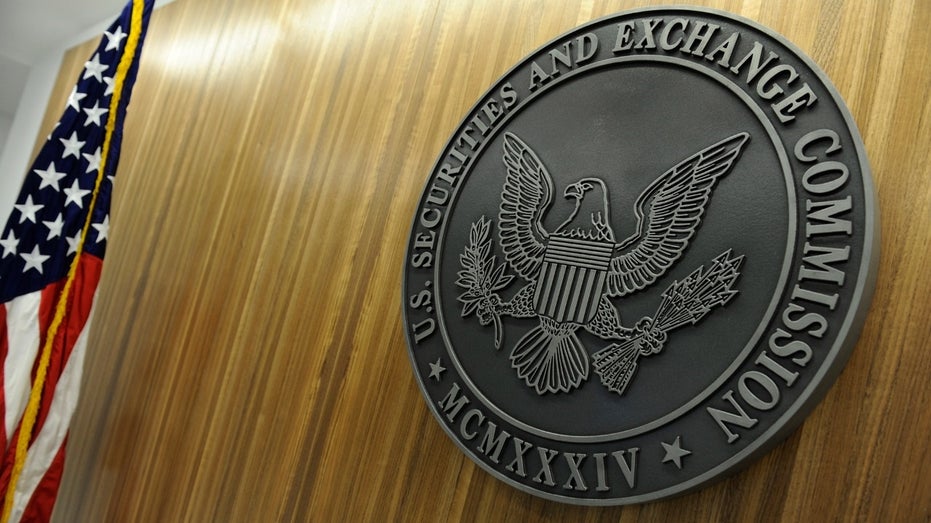Elon Musk risks new fight with SEC over late report on Twitter stake
Experts say the SEC could hit Musk with a financial penalty over late disclosure of Twitter stake
How Twitter appointing Elon Musk to board of directors affects stocks
Stuart Varney, Susan Li and Bahnsen Group managing partner David Bahnsen discuss how Twitter announcing it’s appointing Tesla and SpaceX founder Elon Musk to its board is impacting the stock market.
Elon Musk may have just picked another battle with the Securities and Exchange Commission, setting up a potential showdown over how he disclosed his investment in Twitter.
The Tesla chief executive on Monday disclosed that he had acquired a 9.2% stake in Twitter – making him its largest shareholder – in an SEC form that investors are required to file when they own more than 5% of a company. The filing, dated March 14, revealed that Musk bought about 73.5 million shares for roughly $2.9 billion.
But security law experts say the filing came several days later than it should have, because the SEC requires anyone who acquires more than 5% of a company's common share to disclose their holdings within 10 calendar days.
Musk appears to have waited 21 days after March 14 to file the form. A spokesperson for Musk did not immediately respond to a request for comment.

Elon Musk, Tesla CEO, attends the opening of the Tesla factory Berlin Brandenburg in Gruenheide, Germany, Tuesday, March 22, 2022. (Patrick Pleul/Pool via AP / AP Newsroom)
"It is bewildering," Marc Steinberg, a law professor at the Southern Methodist University School of Law, told FOX Business. "He obviously has very good legal council, especially in regard to filing a form with the SEC and when to file it."
ELON MUSK PURCHASES STAKE IN TWITTER AFTER SLAMMING ITS APPROACH TO ‘FREE SPEECH’
On top of that, the document that Musk registered with the SEC – form 13G – indicates that he planned to be a passive investor and that he did not intend to take on a larger role with the company. Those forms require the shareholder to include a certification saying they didn't acquire the shares in order to influence or control the company. Musk did not include that statement on his form; he wrote "not applicable."
Twitter's announcement on Tuesday that Musk will be joining the board of directors after "conversations in recent weeks" could further complicate matters.
Shareholders who are hoping to hold a board position or otherwise change the company are typically required to file a longer, more in-depth form known as 13D within 10 days of buying at least a 5% stake.
"[Musk] being a nominee for director is not a passive investor," Steinberg, a former enforcement attorney at the SEC, said. "I think it’s pretty much a consensus in the viewpoint that a director has the ability to impact the policies and practices of the organization, and that person is not a passive investor."
Musk has since refiled the disclosure to classify himself as an active investor.
"We also know from Elon one of his favorite things to do is to troll the SEC. My presumption is that he might be being vague on purpose."
It is likely that the SEC will probe Musk about when exactly he hit the 5% stock threshold that requires shareholders to report their holdings, according to Michael Dambra, an associate professor of accounting and law at the University at Buffalo.
If the SEC determined that Musk violated the disclosure rule, he could be hit with a financial penalty, which are historically pretty small, around $100,000. A fine of that size would be just a slap on the wrist for Musk, who is the world's richest person with a $288 billion net worth, according to the Bloomberg Billionaires Index.
"We also know from Elon one of his favorite things to do is to troll the SEC," he said. "My presumption is that he might be being vague on purpose."

The seal of the U.S. Securities and Exchange Commission hangs on the wall at SEC headquarters (Reuters/Jonathan Ernst / Reuters Photos)
Dambra said he thinks the SEC will also be interested in Musk's intent with the 9.2% investment, given the immediate announcement that he will be joining the board. It is unclear what Musk's intentions are with the purchase or the board seat.
In recent months, the SpaceX founder has launched a flurry of criticism aimed at Twitter, which he has accused of stifling free speech. In a tweet on Tuesday, Musk hinted that he hopes to make "significant improvements" to Twitter in the coming months after he was named to the company's board of directors, a term that expires in 2024.
"Ultimately what’s interesting here is, what are the consequences?" Dambra said. "Historically, as you see, disclosure punishments, they’re usually typically small, about $100,000. They’re pretty small. Does that matter to Elon vs. his ability to troll? Probably not."
This would not be Musk's first run-in with the SEC.
In September 2018, the SEC charged Musk with making "false and misleading" statements to investors after he abruptly tweeted in August that he was considering taking Tesla private at $420 per share and had already secured the funding (Tesla shares soared upon the initial tweet, rising more than 10%). The deal that Musk referenced never came to fruition.
CLICK HERE TO READ MORE ON FOX BUSINESS
Musk and Tesla eventually agreed to a settlement with the government that required both to pay $20 million in fines to the SEC. Musk also had to relinquish his role as chairman of the company's board, while Tesla was forced to put into place controls to oversee Musk’s communication online.
Last month, Musk asked a federal judge to scrap the settlement that he reached, arguing the SEC is abusing its social media policy to continuously investigate his statements. The SEC has denied that accusation.





















